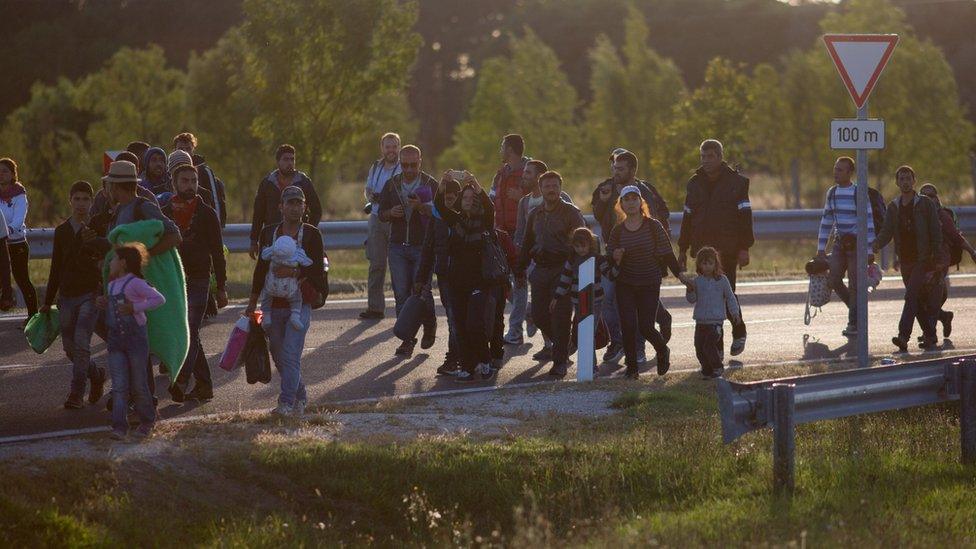Syrian refugees 'happy' to be in Wales
- Published
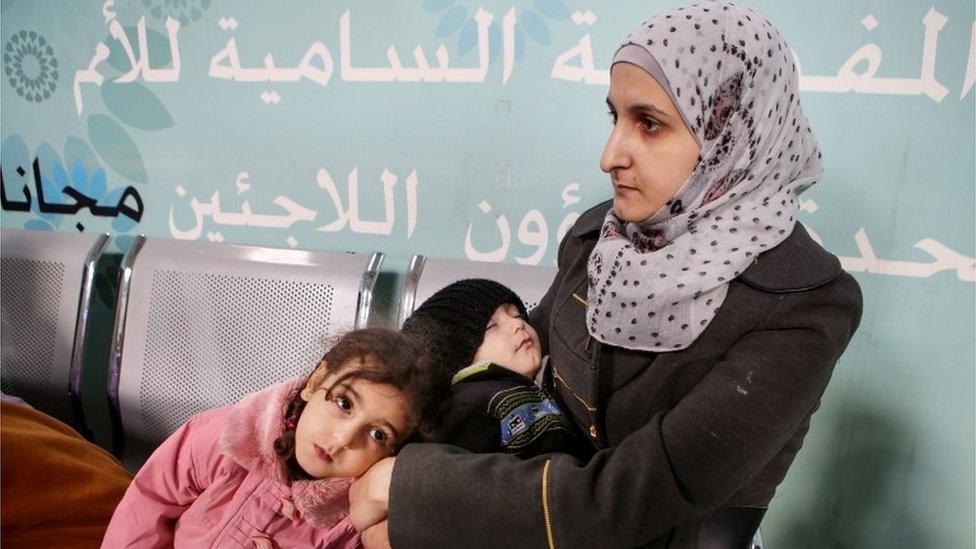
The first refugees to arrive in Wales after fleeing war-torn Syria are "happy" and "relieved to be here", according to those helping to welcome them.
About 50 people have now been re-settled in Torfaen, Ceredigion, Neath Port Talbot and Caerphilly.
More will be dispersed to other areas in the new year.
David Cameron has confirmed the first 1,000 Syrian refugees are now in the UK under a resettlement scheme.
The UK government has promised to accept 20,000 Syrians over five years, with about 1,000 coming to Wales.
Eleven refugees arrived in Aberystwyth last week after being picked up from the airport by the British Red Cross.
Ceredigion council's families first co-ordinator Catherine Morgan said they were being helped to settle into their new lives.
"They're happy, they're relieved to be here. They're smiling," she said.
"They're just settling in at the moment, they've been through a lot to get here. It's very early days but hopefully they'll settle in well and enjoy living in Ceredigion.
"There were lots of smiles and I did apologise for the rain when they arrived because it was raining very hard and they said 'it's lovely' and 'thank you'. They're happy to be here."
Where have the refugees come from?
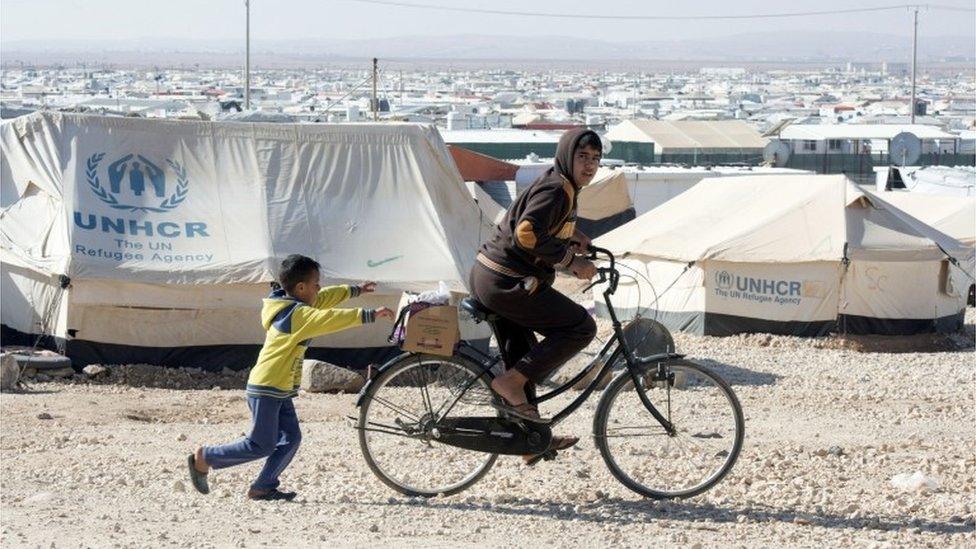
All those being helped have fled violent conflict in Syria and several are victims of torture.
They were all in refugee camps in neighbouring countries in the Middle East where the UN High Commissioner for Refugees identified them as being vulnerable.
The UK government is giving all refugees who are being brought here under the Syrian Vulnerable Person Resettlement (VPR) programme five years' humanitarian protection status.
This means they have the right to remain in Wales for five years with permission to work and access public funds.
Many are families with young children.
Alun Williams, head of policy support at Ceredigion council, said: "The Home Office has vetted them for extremist views and criminality. Only if they are successfully vetted do they get to be part of the scheme. They wouldn't be allowed into this country if they didn't pass those tests.
"They are ordinary people who have been in very difficult circumstances and who have seen and suffered things that no one should ever have to see."
How will they learn about Welsh life and culture?
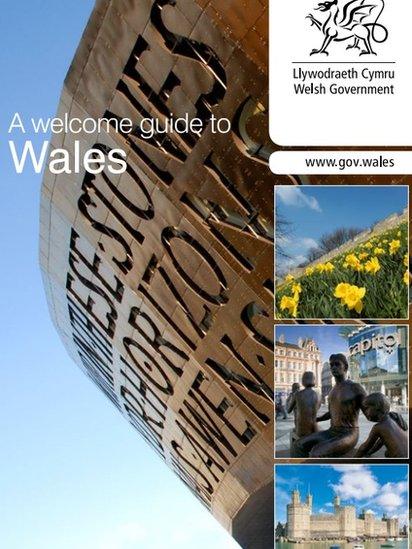
The Welsh government has produced a welcome booklet, external which will be given to all refugees when they arrive.
It gives an overview of the country, its government, police, currency, climate and language, including a guide on how to pronounce common Welsh words: "Bore da (Pronounced: Boh-reh dah): Good morning."
It also gives advice on manners and customs in Wales, including guidance on how to greet people.
"British people are generally reserved and well mannered," it says.
"Neighbours greet each other politely, saying 'good morning or good afternoon' or 'bore da/prynhawn da' in Welsh, and often shake hands."
It also says: "Do not throw litter on the floor but use a public bin. It is considered very bad manners to spit on the floor in public places.
"If you need to sneeze or blow your nose, it is considered normal practice to use a tissue.
"Do not urinate in a public place other than a public toilet."
Practical help is also given, including how to pay bills, help with schools and childcare, how to look for work, advice about driving and what to do if they experience hate crime, abuse or violence.
Where will they live?
Refugees will be accommodated in private rented housing, arranged by councils. The Home Office will meet all of the costs of housing and any other support required.
This means there will be no direct impact on waiting lists or times for council and social housing.
Local people in many places have donated food, clothes and toys to help the families start their new lives.
What about education?
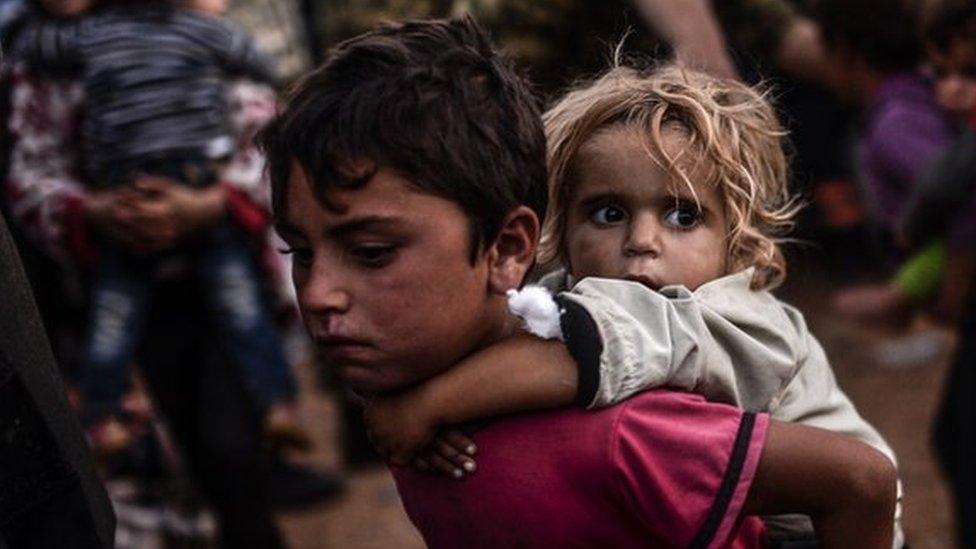
All refugees will be required to learn English.
The Welsh government says this is "important" to help them feel part of their new community, to make friends and to access any important information and services.
Councils will arrange English classes for the refugees, with the costs met by the Home Office.
Children will go to local schools, with those already in Wales starting after the Christmas break.
Any educational support needed will be provided by the Home Office.
What about access to doctors?
The refugees will have access to doctors and dentists, along with all the other services offered on the NHS.
Mr Williams said: "The Home Office are funding the costs for the council and the health board - the costs will be reimbursed 100% for the first year but then tapering off during the following years."
How will the refugees be helped to find places to worship and practise their religion?
The Welsh Refugee Council (WRC) says local authorities are commissioning orientation services to support refugees and help them integrate into local communities.
"This will probably include some introduction to the local area, including places to worship," a spokeswoman said.
How else will they be supported in day-to-day life?
WRC says local communities are responding differently to welcome and settle refugee communities.
Volunteers in Torfaen, for example, have set up a support group and have made welcome hampers containing food and toiletries.
They also plan to provide advice about the area.
The Hay, Brecon and Talgarth Sanctuary for Refugees is another group which has been fundraising to help the resettlement.
Volunteers in Torfaen want to offer 'practical help' to the refugees
In Ceredigion, the British Red Cross is providing daily support for refugees.
"We have been busy helping them with practical issues such as registering with a GP and signing tenancy agreements and also simple things like helping with their shopping," said Denise John, locality manager at the British Red Cross in Ceredigion.
"The families are settling into their homes very nicely and are incredibly grateful for the support they have received so far.
"The Red Cross will continue to provide both practical and emotional support to the refugees as they settle into life in Wales."
- Published16 December 2015
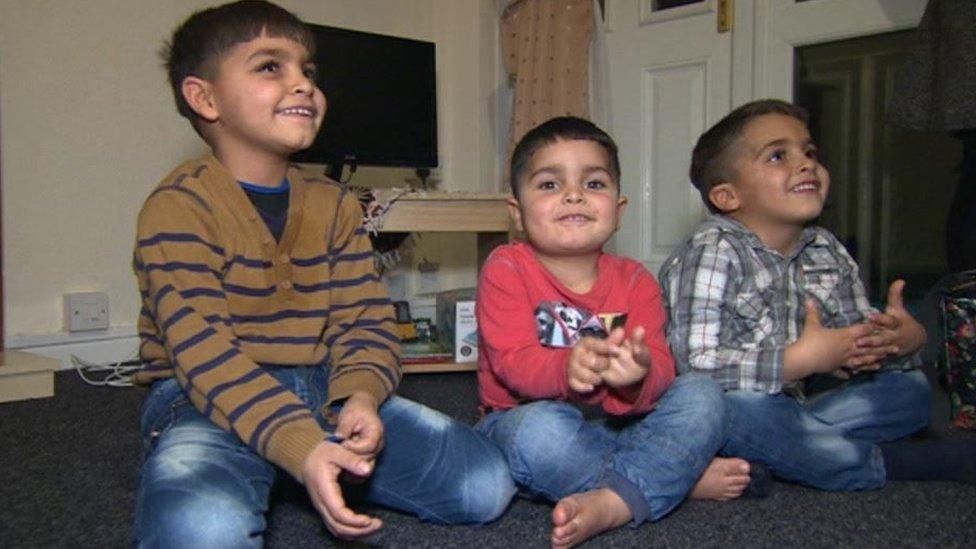
- Published5 December 2015
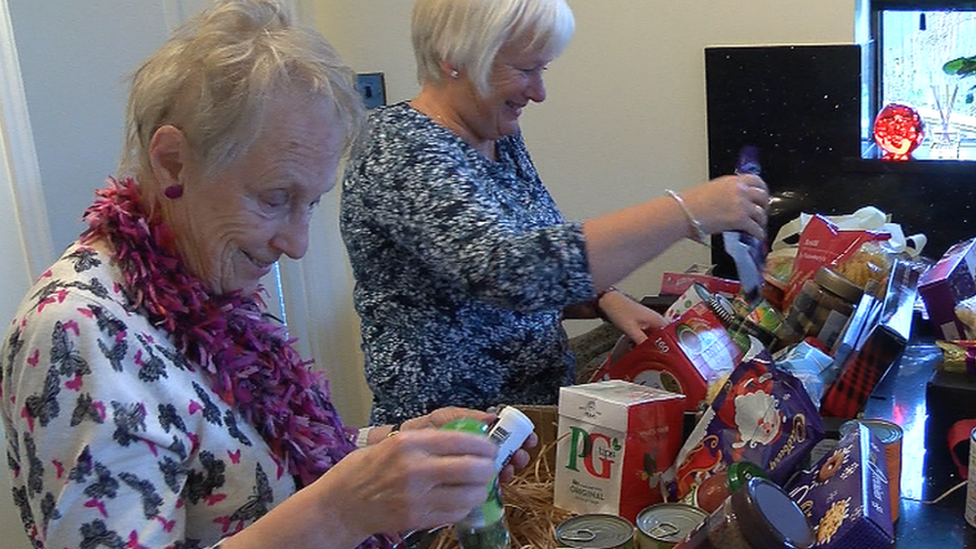
- Published3 December 2015

- Published25 April 2016
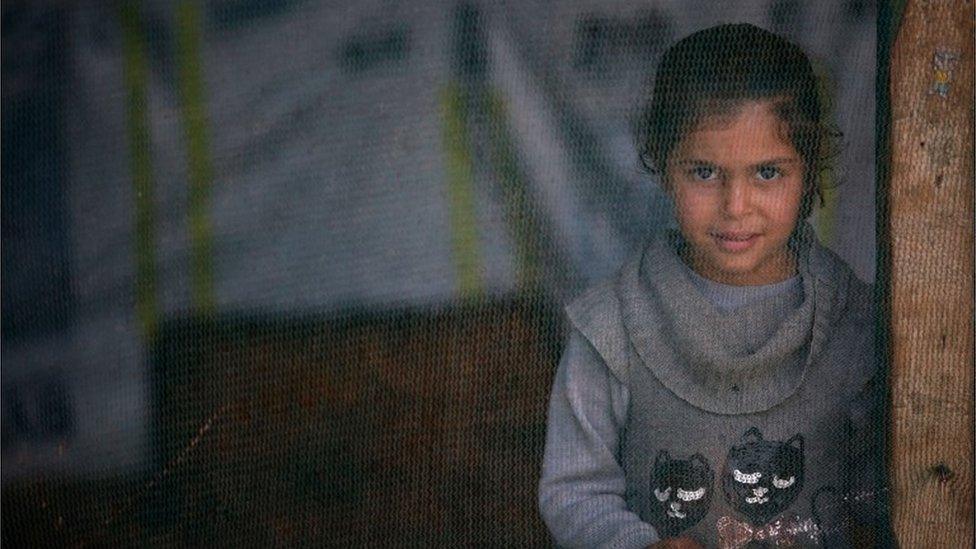
- Published24 November 2015
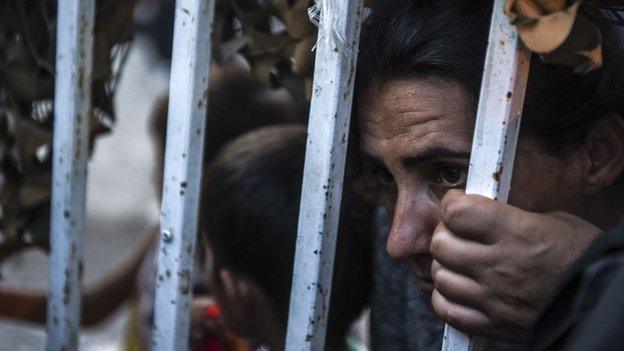
- Published19 November 2015

- Published8 September 2015
